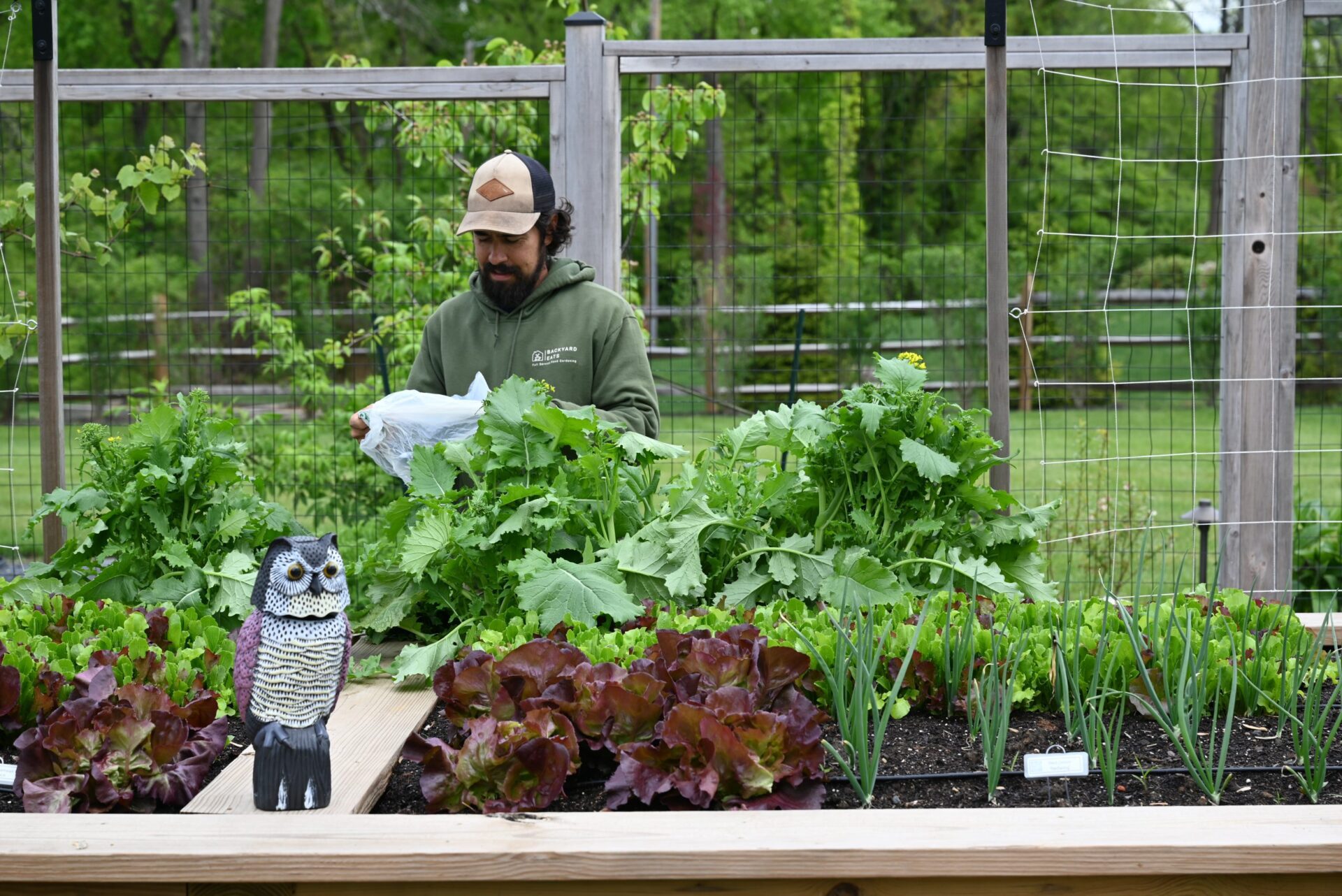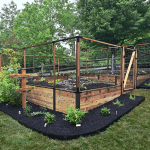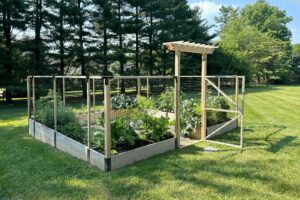
[et_pb_section fb_built=”1″ _builder_version=”4.16″ da_disable_devices=”off|off|off” global_colors_info=”{}” da_is_popup=”off” da_exit_intent=”off” da_has_close=”on” da_alt_close=”off” da_dark_close=”off” da_not_modal=”on” da_is_singular=”off” da_with_loader=”off” da_has_shadow=”on”][et_pb_row _builder_version=”4.16″ background_size=”initial” background_position=”top_left” background_repeat=”repeat” global_colors_info=”{}”][et_pb_column type=”4_4″ _builder_version=”4.16″ custom_padding=”|||” global_colors_info=”{}” custom_padding__hover=”|||”][et_pb_text _builder_version=”4.22.2″ _module_preset=”default” global_colors_info=”{}”]
Table of Contents
-
Introduction
-
What is Horticultural Vinegar?
-
What are the Benefits of Horticultural Vinegar?
-
What are the Health Risks of Vinegar?
-
What is RoundUp?
-
What are the Benefits of RoundUp?
-
What are the Health Risks of RoundUp?
-
Conclusion
[/et_pb_text][et_pb_text _builder_version=”4.22.2″ background_size=”initial” background_position=”top_left” background_repeat=”repeat” link_option_url=”#introduction” global_colors_info=”{}”]
Introduction
[/et_pb_text][et_pb_text _builder_version=”4.22.2″ _module_preset=”default” link_font=”|700|||on|||#000000|” link_text_color=”#000000″ global_colors_info=”{}”]
At Backyard Eats, we believe that what you eat matters. That’s why we pride ourselves on our raised bed garden systems and organic maintenance techniques that avoid the harmful effects of synthetic herbicides on human and plant health.
By raising garden beds aboveground and filling them with an organic soil blend, we remove the risk of soil contamination – but it doesn’t stop weeds from growing.
Glyphosate is one of the most commonly used herbicides and weed control chemicals worldwide. This chemical is sold under the brand name RoundUp in most gardening and home improvement stores.
However, medical and scientific communities are concerned about the toxic effects of glyphosate on humans and the environment. The International Agency for Research on Cancer (IARC), “the specialized cancer agency of the World Health Organization” has declared glyphosate a “probable human carcinogen” (Footnote 1). Thousands of lawsuits have been filed stating that RoundUp causes non-Hodgkin lymphoma and other cancers, and that producers failed to warn consumers of the associated risks (Footnote 2).
At Backyard Eats, we are professional organic vegetable gardeners. In our expert garden maintenance program, we control weeds using a combination of ongoing maintenance and natural horticultural vinegar (30% concentration).
This article aims to educate gardeners about glyphosate and its risks, as well as propose safer natural alternatives for edible gardening at home and beyond. For more information, Consumer Notice creates resources to provide consumers with reliable health and safety information, including RoundUp alternatives and updates on ongoing RoundUp lawsuits.
[/et_pb_text][/et_pb_column][/et_pb_row][et_pb_row _builder_version=”4.22.2″ _module_preset=”default” global_colors_info=”{}”][et_pb_column type=”4_4″ _builder_version=”4.22.2″ _module_preset=”default” global_colors_info=”{}”][et_pb_image src=”https://backyard-eats.com/wp-content/uploads/2023/10/Garden-Maintenance-Team-scaled.jpg” title_text=”Garden Maintenance Team” _builder_version=”4.22.2″ _module_preset=”default” global_colors_info=”{}”][/et_pb_image][et_pb_text _builder_version=”4.22.2″ _module_preset=”default” global_colors_info=”{}”]
Pat, a member of our maintenance team, harvests produce from a client’s spring backyard garden.
[/et_pb_text][/et_pb_column][/et_pb_row][et_pb_row _builder_version=”4.16″ background_size=”initial” background_position=”top_left” background_repeat=”repeat” global_colors_info=”{}”][et_pb_column type=”4_4″ _builder_version=”4.16″ custom_padding=”|||” global_colors_info=”{}” custom_padding__hover=”|||”][et_pb_text _builder_version=”4.22.2″ background_size=”initial” background_position=”top_left” background_repeat=”repeat” global_colors_info=”{}”]
What is Horticultural Vinegar?
[/et_pb_text][et_pb_text _builder_version=”4.22.2″ _module_preset=”default” link_font=”|700|||on|||#000000|” link_text_color=”#000000″ global_colors_info=”{}”]
Horticultural vinegar is a type of vinegar that is specifically designed and used for agriculture and general gardening purposes. It is a higher-strength vinegar than culinary vinegar.
Because it is made using plant matter, horticultural vinegar is considered an organic herbicide. This means it’s approved for use in organic production according to OMRI (Organic Materials Review Institute) standards. Brands like Green Gobbler’s 20% Horticultural Vinegar Weed Killer and Serene Horticultural Vinegar are examples of such products. Always look for the OMRI Listed seal to confirm organic status.
[/et_pb_text][/et_pb_column][/et_pb_row][et_pb_row _builder_version=”4.16″ background_size=”initial” background_position=”top_left” background_repeat=”repeat” global_colors_info=”{}”][et_pb_column type=”4_4″ _builder_version=”4.16″ custom_padding=”|||” global_colors_info=”{}” custom_padding__hover=”|||”][et_pb_text _builder_version=”4.22.2″ background_size=”initial” background_position=”top_left” background_repeat=”repeat” global_colors_info=”{}”]
What are the Benefits of Horticultural Vinegar?
[/et_pb_text][et_pb_text _builder_version=”4.22.2″ _module_preset=”default” link_font=”|700|||on|||#000000|” link_text_color=”#000000″ global_colors_info=”{}”]
Natural solutions like vinegar are becoming increasingly popular alternatives to chemicals like glyphosate for gardeners concerned about their health and the environment. Unlike glyphosate, horticultural vinegar is made of natural ingredients that break down quickly in the soil.
Horticultural vinegar’s higher acidity makes it an effective weed killer because it burns and damages plant tissues, eventually killing unwanted plants. It is commonly applied using a handheld spray bottle or pump sprayer, and most effective when used in combination with tilling or other soil-level methods (Footnote 3).
[/et_pb_text][/et_pb_column][/et_pb_row][et_pb_row _builder_version=”4.16″ background_size=”initial” background_position=”top_left” background_repeat=”repeat” global_colors_info=”{}”][et_pb_column type=”4_4″ _builder_version=”4.16″ custom_padding=”|||” global_colors_info=”{}” custom_padding__hover=”|||”][et_pb_text _builder_version=”4.22.2″ background_size=”initial” background_position=”top_left” background_repeat=”repeat” global_colors_info=”{}”]
What are the Health Risks of Vinegar?
[/et_pb_text][et_pb_text _builder_version=”4.22.2″ _module_preset=”default” link_font=”|700|||on|||#000000|” link_text_color=”#000000″ global_colors_info=”{}”]
Due to its relatively high acidity, it’s important to take common safety precautions while using horticultural vinegar. Wearing protective clothing, gloves, and eyewear will shield your skin and eyes from irritation. Always follow the manufacturer’s instructions. Inhalation exposure is also a risk with horticultural vinegar, especially when a fine mist is used, and wind is present.
Note: Horticultural vinegar is a non-selective weed killer, meaning that it will damage any plant that comes into contact with: not just weeds.
[/et_pb_text][/et_pb_column][/et_pb_row][et_pb_row _builder_version=”4.22.2″ _module_preset=”default” global_colors_info=”{}”][et_pb_column type=”4_4″ _builder_version=”4.22.2″ _module_preset=”default” global_colors_info=”{}”][et_pb_image src=”https://backyard-eats.com/wp-content/uploads/2023/09/DSC7789-scaled.jpg” title_text=”_DSC7789″ _builder_version=”4.22.2″ _module_preset=”default” global_colors_info=”{}”][/et_pb_image][et_pb_text _builder_version=”4.22.2″ _module_preset=”default” global_colors_info=”{}”]
Backyard Eats uses organic garden maintenance methods, including weed control and soil amendment.
[/et_pb_text][/et_pb_column][/et_pb_row][et_pb_row _builder_version=”4.16″ background_size=”initial” background_position=”top_left” background_repeat=”repeat” global_colors_info=”{}”][et_pb_column type=”4_4″ _builder_version=”4.16″ custom_padding=”|||” global_colors_info=”{}” custom_padding__hover=”|||”][et_pb_text _builder_version=”4.22.2″ background_size=”initial” background_position=”top_left” background_repeat=”repeat” global_colors_info=”{}”]
What is RoundUp?
[/et_pb_text][et_pb_text _builder_version=”4.22.2″ _module_preset=”default” link_font=”|700|||on|||#000000|” link_text_color=”#000000″ global_colors_info=”{}”]
Roundup is one brand name for the herbicide glyphosate. It is a chemical designed to kill unwanted plants (weeds) by destroying a plant’s tissue upon absorption.
RoundUp is usually applied as a liquid spray on the leaves of unwanted plants. In agricultural settings, it is also used in combination with “Roundup Ready” crops which are genetically modified to resist the deadly effects of this chemical.
Glyphosate is synthesized from chemicals, so it is considered a synthetic herbicide. RoundUp is not OMRI-listed, meaning that it’s not certified as suitable for organic operations. Note that some vinegars are made with Roundup Ready corn, which makes it important to use organic horticultural vinegar for sustainable home gardening (Footnote 4).
[/et_pb_text][/et_pb_column][/et_pb_row][et_pb_row _builder_version=”4.16″ background_size=”initial” background_position=”top_left” background_repeat=”repeat” global_colors_info=”{}”][et_pb_column type=”4_4″ _builder_version=”4.16″ custom_padding=”|||” global_colors_info=”{}” custom_padding__hover=”|||”][et_pb_text _builder_version=”4.22.2″ background_size=”initial” background_position=”top_left” background_repeat=”repeat” global_colors_info=”{}”]
What Are The Benefits of RoundUp?
[/et_pb_text][et_pb_text _builder_version=”4.22.2″ _module_preset=”default” link_font=”|700|||on|||#000000|” link_text_color=”#000000″ global_colors_info=”{}”]
RoundUp became popular because it is a highly effective weed killer that doesn’t require soil disturbance. Because of its strength, it is also more effective against perennial plants with deeper root systems than some organic methods.
After a plant is sprayed with glyphosate, it absorbs the chemical through its leaves and stems. Then the herbicide is transferred throughout the entire plant, damaging plant tissue and eventually causing the plant to wither and die.
[/et_pb_text][/et_pb_column][/et_pb_row][et_pb_row _builder_version=”4.16″ background_size=”initial” background_position=”top_left” background_repeat=”repeat” global_colors_info=”{}”][et_pb_column type=”4_4″ _builder_version=”4.16″ custom_padding=”|||” global_colors_info=”{}” custom_padding__hover=”|||”][et_pb_text _builder_version=”4.22.2″ background_size=”initial” background_position=”top_left” background_repeat=”repeat” global_colors_info=”{}”]
What Are The Health Risks of RoundUp?
[/et_pb_text][et_pb_text _builder_version=”4.22.2″ _module_preset=”default” link_font=”|700|||on|||#000000|” link_text_color=”#000000″ global_colors_info=”{}”]
Glyphosate poses a number of concerns for environmental and human health. The World Health Organization and International Agency for Research on Cancer (IARC) both classify glyphosate as a “probable human carcinogen.”
After spraying crops with glyphosate, the excess herbicide sinks into the soil and contaminates water sources. Contaminated watersheds affect all levels of life from microorganisms to plants and animals including humans. It can also harm plants besides intended weeds.
Weeds also become resistant to glyphosate over time, increasing the demand for even stronger herbicides. This demand in turn increases the level of toxic chemicals exposed to food crops, the environment, and human workers. Some glyphosate residue has even been found in food products (Footnote 5). Many academic studies have linked prolonged glyphosate exposure to increased risk of cancer, liver disease, and other health complications (Footnote 6).
According to Tim Turner from Consumer Notice,
“Research on Roundup and cancer is still evolving, but studies show some evidence that exposure to high levels of glyphosate may increase the risk of developing non-Hodgkin lymphoma among people exposed to the chemical over long periods of time. Research also shows that long-term high level glyphosate exposure may impact the developing fetus in pregnant women and that glyphosate damage to gut bacteria may negatively impact the growing brains of young children. Effects of Roundup exposure can be mild or severe, depending on the length and amount of exposure” (Footnote 7).
Although the EPA continues to contest that RoundUp is not hazardous when used correctly, thousands of lawsuits against Monsanto and Bayer remain active today.
[/et_pb_text][/et_pb_column][/et_pb_row][et_pb_row _builder_version=”4.16″ background_size=”initial” background_position=”top_left” background_repeat=”repeat” global_colors_info=”{}”][et_pb_column type=”4_4″ _builder_version=”4.16″ custom_padding=”|||” global_colors_info=”{}” custom_padding__hover=”|||”][et_pb_text _builder_version=”4.22.2″ background_size=”initial” background_position=”top_left” background_repeat=”repeat” global_colors_info=”{}”]
Conclusion
[/et_pb_text][et_pb_cta button_url=”https://backyard-eats.com/contact-us/” _builder_version=”4.22.2″ _module_preset=”default” body_text_color=”#FFFFFF” body_font_size=”16px” body_line_height=”1.8em” body_link_font=”|700|||on|||#FFFFFF|” body_link_text_color=”#FFFFFF” background_color=”#844B67″ custom_button=”on” button_text_color=”#FFFFFF” button_border_color=”#FFFFFF” button_font=”||||on|||#FFFFFF|” button_use_icon=”off” button_alignment=”left” custom_padding=”|30px|40px|30px|false|false” global_colors_info=”{}”]
In conclusion, we believe that implementing “natural” gardening techniques like raised beds and manual weed control methods are the best way to control the health of your garden, your food, and therefore yourself. We hope this article highlighted the dangers of chemical herbicides like glyphosate and prompted you to consider organic alternatives.
For more information about our organic garden maintenance services, you can learn more on our website here.
For more information about RoundUp alternatives and ongoing lawsuits, Consumer Notice strives to promote customer awareness of public health and their rights.
[/et_pb_cta][/et_pb_column][/et_pb_row][et_pb_row _builder_version=”4.22.2″ _module_preset=”default” global_colors_info=”{}”][et_pb_column type=”4_4″ _builder_version=”4.22.2″ _module_preset=”default” global_colors_info=”{}”][et_pb_divider show_divider=”off” _builder_version=”4.22.2″ _module_preset=”default” global_colors_info=”{}”][/et_pb_divider][/et_pb_column][/et_pb_row][et_pb_row _builder_version=”4.16″ background_size=”initial” background_position=”top_left” background_repeat=”repeat” global_colors_info=”{}”][et_pb_column type=”4_4″ _builder_version=”4.16″ custom_padding=”|||” global_colors_info=”{}” custom_padding__hover=”|||”][et_pb_text _builder_version=”4.22.2″ background_size=”initial” background_position=”top_left” background_repeat=”repeat” global_colors_info=”{}”]
Footnotes
[/et_pb_text][et_pb_text _builder_version=”4.22.2″ _module_preset=”default” link_font=”|700|||on|||#000000|” link_text_color=”#000000″ global_colors_info=”{}”]
- “IARC Monograph on Glyphosate.” World Health Organization. Accessed September 29, 2023. https://www.iarc.who.int/featured-news/media-centre-iarc-news-glyphosate/.
- Llamas, Michelle. “Roundup Cancer Lawsuit: 2023 Updates, Class Action Lawsuit.” Edited by Amy Edel. Consumer Notice, LLC. Accessed September 29, 2023. https://www.consumernotice.org/legal/roundup-lawsuits/.
- Llamas, Michelle. “Safe Roundup Alternatives: Killing Weeds without Glyphosate.” Edited by Amy Edel. Consumer Notice, LLC. Accessed September 29, 2023. https://www.consumernotice.org/environmental/pesticides/roundup/alternatives/.
- Turner, Terry, and Kim Borwick. “Roundup Weed Killer: Uses, Safety & Cancer Risk.” Consumer Notice, LLC. Accessed September 29, 2023. https://www.consumernotice.org/environmental/pesticides/roundup/.
- “IARC Monograph on Glyphosate.” World Health Organization. Accessed 2023.
- Llamas, Michelle. “Roundup Cancer Lawsuit: 2023 Updates, Class Action Lawsuit.” Accessed 2023.
- Turner, Terry, and Kim Borwick. “Roundup Weed Killer: Uses, Safety & Cancer Risk.” Accessed 2023.
[/et_pb_text][/et_pb_column][/et_pb_row][et_pb_row _builder_version=”4.16″ background_size=”initial” background_position=”top_left” background_repeat=”repeat” global_colors_info=”{}”][et_pb_column type=”4_4″ _builder_version=”4.16″ custom_padding=”|||” global_colors_info=”{}” custom_padding__hover=”|||”][et_pb_text _builder_version=”4.22.2″ background_size=”initial” background_position=”top_left” background_repeat=”repeat” global_colors_info=”{}”]
Sources
[/et_pb_text][et_pb_text _builder_version=”4.22.2″ _module_preset=”default” link_font=”|700|||on|||#000000|” link_text_color=”#000000″ global_colors_info=”{}”]
“IARC Monograph on Glyphosate.” World Health Organization. Accessed September 29, 2023. https://www.iarc.who.int/featured-news/media-centre-iarc-news-glyphosate/.
See full monograph available as a pdf download on the IARC page.
Llamas, Michelle. “Roundup Cancer Lawsuit: 2023 Updates, Class Action Lawsuit.” Edited by Amy Edel. Consumer Notice, LLC. Accessed September 29, 2023. https://www.consumernotice.org/legal/roundup-lawsuits/.
Llamas, Michelle. “Safe Roundup Alternatives: Killing Weeds without Glyphosate.” Edited by Amy Edel. Consumer Notice, LLC. Accessed September 29, 2023. https://www.consumernotice.org/environmental/pesticides/roundup/alternatives/.
Turner, Terry, and Kim Borwick. “Roundup Weed Killer: Uses, Safety & Cancer Risk.” Consumer Notice, LLC. Accessed September 29, 2023. https://www.consumernotice.org/environmental/pesticides/roundup/.
[/et_pb_text][/et_pb_column][/et_pb_row][/et_pb_section]







No comment yet, add your voice below!